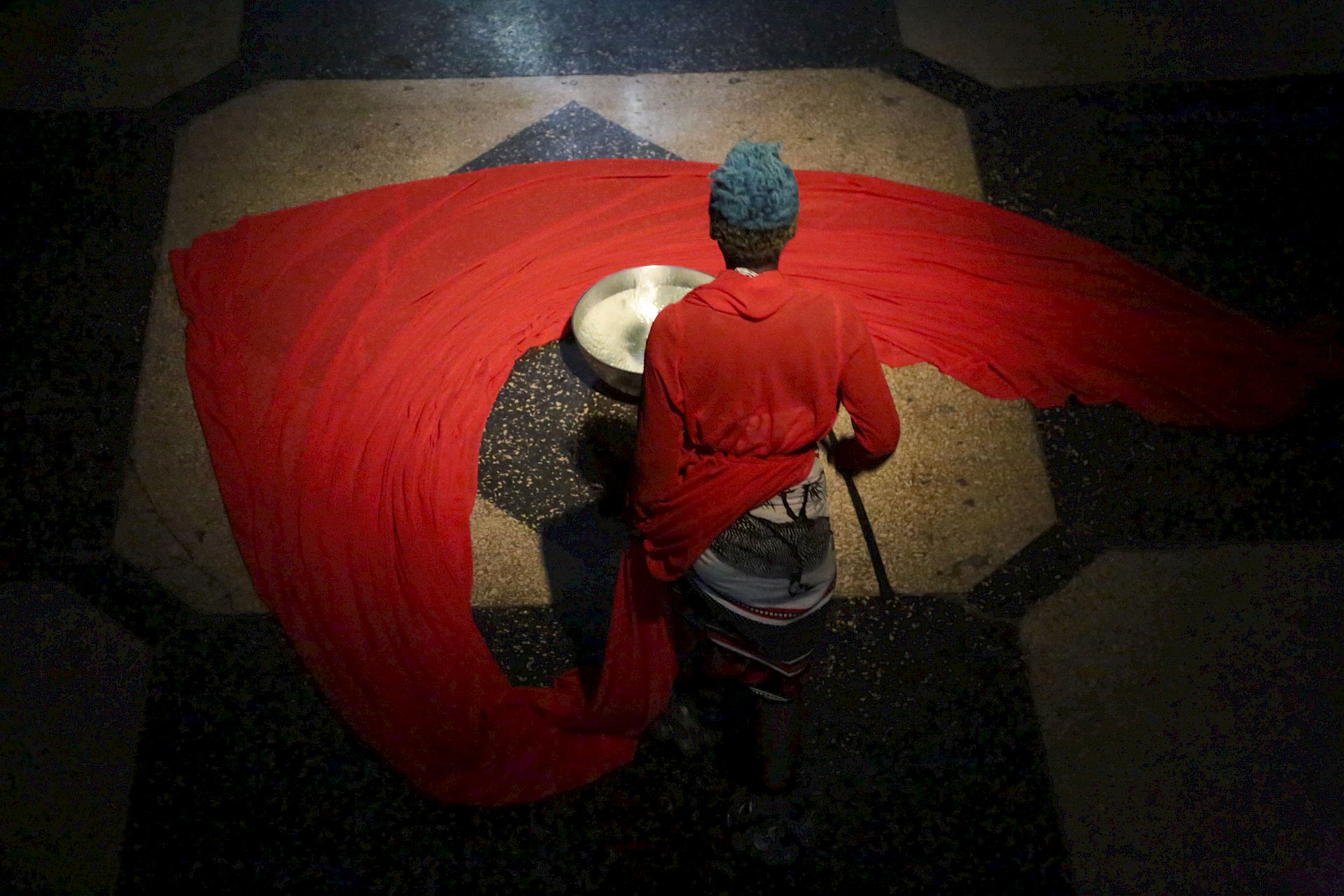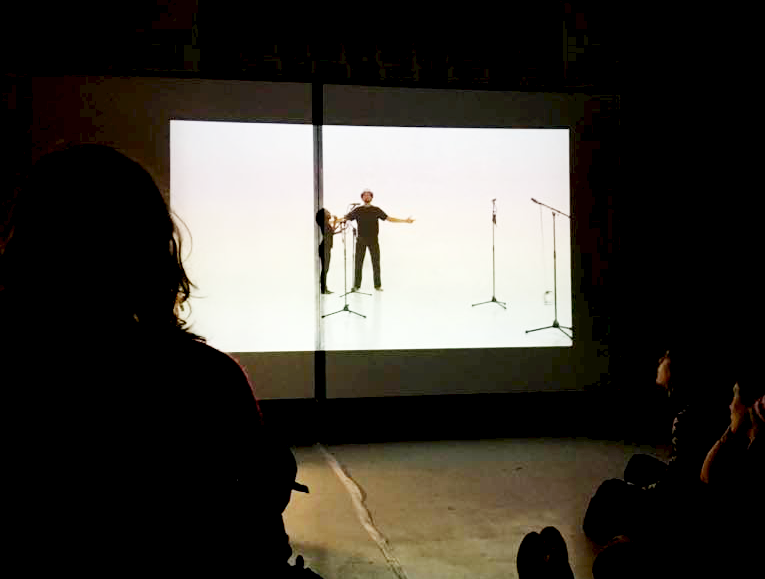Illusions
Speaking Feminisms
Exercise 5 21.04.2017 18:00
With Grada Kilomba
Written and directed by Grada Kilomba
Performed by Martha Fessehatzion, Moses Leo, Grada Kilomba, Zé de Paiva
Camera Zé de Paiva
Camera Assistance Laura Alonso, Tito Casal
Costume design Moses Leo
Editor Grada Kilomba
Fee Suggested donation 3€/5€
Children welcome Do you want to bring your kids? We will provide a self-organized child care. If interested please send an email until Monday 19.04.2017 to communications@savvy-contemporary.com with subject line child care and tell us the age of your kid(s). The child care will cost a small fee, the amount of which will depend on the number of children.
Curation Elena Agudio, Federica Bueti, Nathalie Anguezomo Mba Bikoro
In this performance, Grada Kilomba brings the African oral tradition of story telling into a contemporary context, to recover the memories and realities of a postcolonial world. “It seems, we are still inhabiting the geographies of the past” insists the artist. To explore this coexistence of times, in which the past seems to coincide with the present; and the present seems suffocated by a colonial past, Kilomba stages the myths of Narcissus and Echo anew.
In the eyes of the artist, Narcissus becomes a metaphor for a society which has not resolved its colonial history, and takes itself and its own image as the only objects of love. Thus, Narcissus is enchanted by his own reflection on the surface of the lake. While Echo is reduced to endlessly repeating what she’s heard – the words of Narcissus. Kilomba questions, how do we break out of this colonial and patriarchal mould?
Playing with the illusion of a two layer scenario, Kilomba created a large scale silent film, in which the characters Narcissus and Echo move inside a white infinity, while the artist, outside and surrounded by an installation of microphones, becomes the contemporary “griot” who retells these mythical stories with a postcolonial urgency.
Grada Kilomba is a Portuguese interdisciplinary artist and writer living in Berlin. Her work draws on memory, trauma, race, gender, and the post-colonial condition. Her work has been presented at international venues, such as the 32. Bienal de Sao Paulo 2016, Rauma Biennal Balticum 2016, ArtBasel, Art Fair Cape Town, Secession Museum in Vienna, Bozar Museum in Brussels, London Maritime Museum, Palácio das Artes in Belo Horizonte, Haus der Kulturen der Welt in Berlin, Kampnagel in Hamburg, Maxim Gorki Theatre in Berlin, Wits Theatre in Johannesburg, among others. She is best known for her unconventional writing and her subversive use of artistic practices, bringing text into performance, and giving body, voice and image to her own writings – using a variety of formats from video installations, to staged readings, to performances, to text collage, and to three dimensional and sound installations. To approach “the colonial wound,” as Kilomba says, she intentionally creates a hybrid space between the academic and the artistic languages, to explore new formats of decolonising knowledge and narrative, bringing a new, experimental, and compelling voice into contemporary art and discourse.


